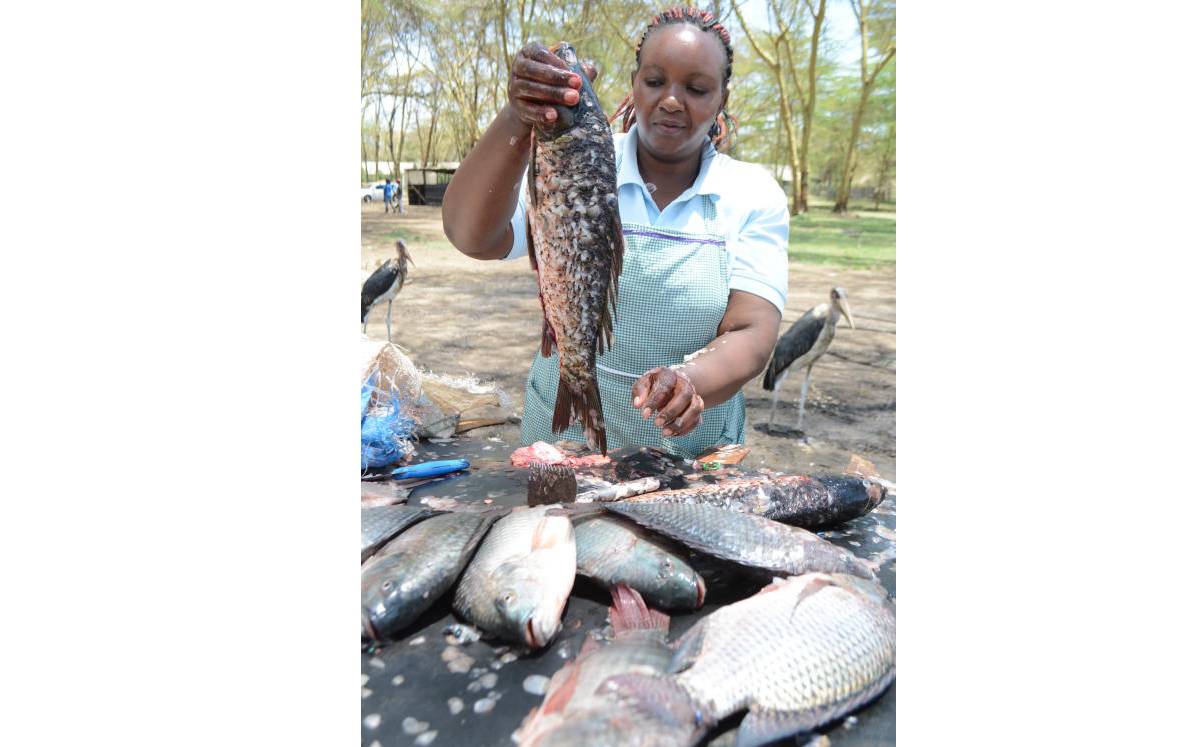×
The Standard e-Paper
Join Thousands Daily

Trader prepares fish for sale at Karagita landing beach in Lake Naivasha after the three-day fishing ban was lifted by the sub-county government. The ban was meant to give way for a major clean-up exercise targeting abandoned nets in the water body. [Antony Gitonga, Standard]
The Common Carp fish, a fish species that was once dominant in Lake Naivasha, is facing extinction.